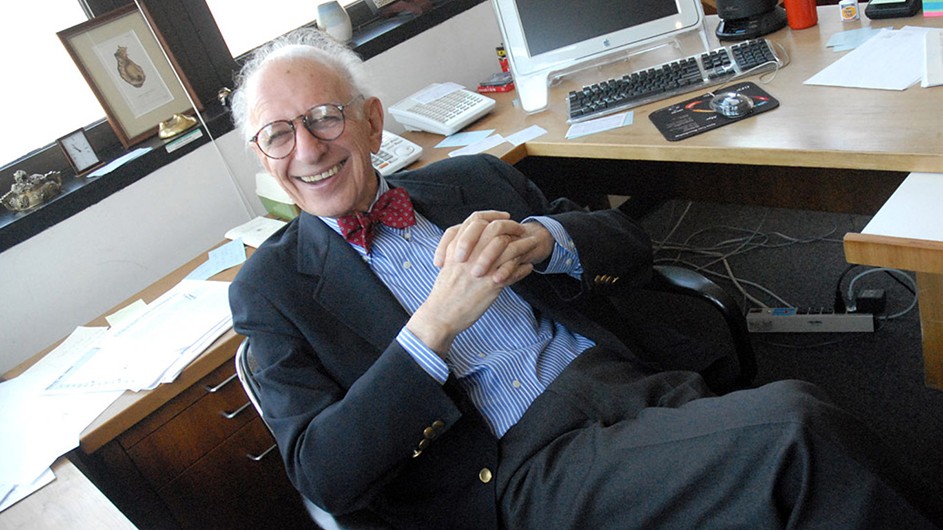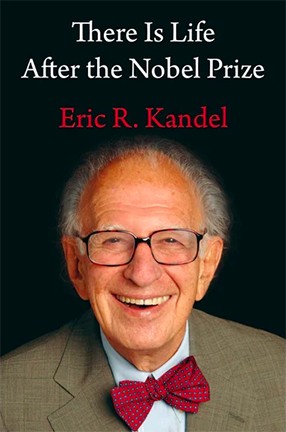Is There Life After Winning a Nobel Prize?
According to neuroscientist Eric Kandel’s new book, the answer is a resounding yes.

One day in 1996, neuroscientist Eric Kandel, codirector of the Zuckerman Institute, took a call from his program officer at the National Institute of Mental Health, who informed him that he had been awarded a key grant. Also, the officer said, he and his colleagues thought Kandel would win the Nobel Prize.
“I hope not soon,” Kandel’s wife, Denise, a professor of sociomedical sciences in psychiatry at the Mailman School of Public Health, said when she heard this. Sociologists had found that Nobel Prize winners often did not contribute much more to science after getting their awards, she explained.
In his new book, There Is Life After the Nobel Prize, Kandel recounts his remarkable career since receiving the Nobel in 2000—or his experience of proving to his wife that he was not yet “completely dead intellectually.” He takes readers through his lab’s scientific advances, including research into how long-term memory is stored in the brain, the nature of age-related memory loss, and the neuroscience of drug addiction and schizophrenia.
Kandel discusses the book with Columbia News, along with what he’s reading now and which art exhibitions he’s been able to visit during the pandemic.
Q. What inspired you to write this book?
A. I wrote the book because there is a belief among many people, including sociologists of science, that once you win the Nobel Prize, you are so busy celebrating the award that you have a difficult time doing anything further creative in science. I found that this is not quite true; I was still able to be a creative scientist. Writing this book helped me to demonstrate that.

Q. How did winning the Nobel Prize change the course of your career?
A. I do not believe that winning the Nobel changed the course of my career, but it brought a great deal more attention to me and to my science than I had received previously.
Q. Do you think things would have turned out differently for you had you not won the Nobel?
A. Not really. It is hard to be sure. It is quite likely that, had I not won this prize, my work would have received less attention. In any event, I did not change any of my academic affiliations.
Q. Are you working on anything with your wife currently?
A. No, but we are thinking of writing a review on the Gateway Hypothesis of Substance Use.
Q. What's on your nightstand now?
A. Prophets Without Honour: Freud, Kafka, Einstein, and Their World by Frederic V. Grunfeld; Lincoln and the Jews: A History by Jonathan D. Sarna and Benjamin Shapell; The Mental Life of Modernism by Samuel Jay Keyser; and Atmosphere, Mood, Stimmung: On a Hidden Potential of Literature by Hans Ulrich Gumbrecht.
Q. As an art lover, have you been visiting museums or galleries during the pandemic?
A. No, we have done very little because of COVID. Several months ago, my wife and I went to see the terrific exhibition, The Hare with Amber Eyes, at the Jewish Museum. We had seen an earlier version of the show at the Jewish Museum in Vienna. The two installations are quite different. The one in New York gives you a more complete view and understanding of the lives of the Ephrussi family and of the art that they collected.
Check out Books to learn more about publications by Columbia professors.